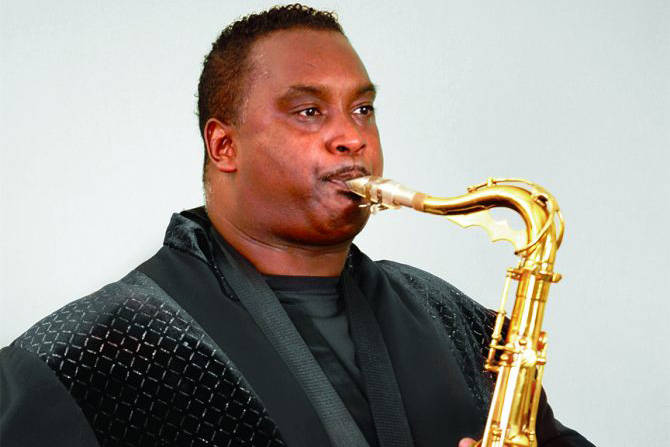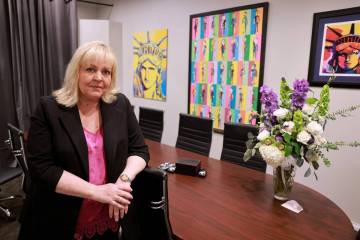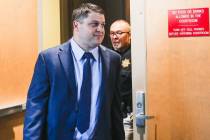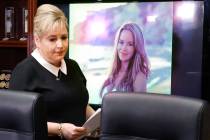Sid the Kid saxophone performance Sunday at Summerlin Library
Sidney Smith of Henderson was in middle school when he played a saxophone for the first time. He joined band while sitting in gym class with a friend. The band teacher at the school came looking to recruit new members.
“I was about 14,” said Smith, who’s set to perform as Sid the Kid with a band Sunday at Summerlin Library. “I initially wanted to play the drums, but so did everyone else. Second pick was the trumpet, but there weren’t any more left, so I ended up with the saxophone.”
An Alexandria, Lousiana native, Smith grew up in the 1960s, during a time of racial turmoil in the South. His time in the area deeply influenced his take on the music he played, he said.
“I didn’t really have any expectations going into it, but I found something that gave me an escape,” Smith said. “I would get my feelings hurt in school and that would be my place to go — my way of making myself feel better.”
Smith moved to Los Angeles at 16 to live with his older sister. After graduating high school, he served in the military for three years, he said, later attending Los Angeles City College, Berklee College of Music in Boston where he received a bachelor’s in music performance and UNLV where he received a masters in Big Band writing, he said.
He moved to Las Vegas 19 years ago, after visiting a friend in the area. He plays regularly at the Park MGM.
“I met Sid while playing at Tivoli Village,” said Rick Vittallo of Spring Valley, who will play alongside Smith on July 14. “We usually perform together. It’s funny —in Vegas, everyone plays together somewhere or another. I’ve taught him tunes, he’s given me gigs. We work pretty well together.”
Smith spoke to the Review-Journal about his journey in music and his upcoming performance.
Question: How was the transition from the South during the late ’60s to Los Angeles?
Smith: Definitely a culture shock. Everyone was different. The people were not as violent in LA. When I moved, I’d never experienced friendly white people. Everybody was just up in arms about the government forcing us to integrate. One day I was at my sister’s house when a guy from next door came over and asked if I wanted to play basketball. I was shocked. I wasn’t used to that at all.
Question: What are some of your childhood memories of music, and how did that contribute to your career? Was your family involved in the arts?
Smith: No, not really, not family, but there was a family down the street from where I lived and I think they had eight kids. The father was a musician, and he was teaching them all to play. I would go listen to him.
I also had a great uncle who asked me what I wanted to be when I grew up. I told him a musician, and he told me there’s three things I had to look out for in becoming one: no smoking, no drinking and no drugs. That’s the biggest pitfall for musicians. So I stayed away from drugs and so forth — never drank or smoked. He went out and bought me a saxophone. I’ve been at it since.
Question: What can people expect Sunday?
Smith: I’m going to play music that they kind of know, fit the age range. I usually play for a younger crowd, but this will be a lot more calm. They can just sit and relax and listen to me play.
Contact Mia Sims at msims@
If you go
What: Sid the Kid and band members in concert
When: 3-4:30 p.m. Sunday
Where: Summerlin Library, 1771 Inner Circle Drive




























